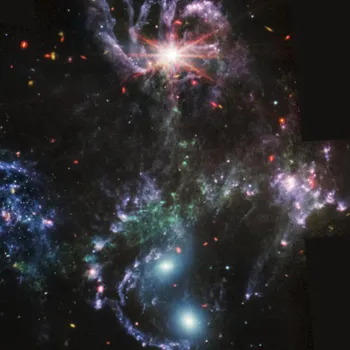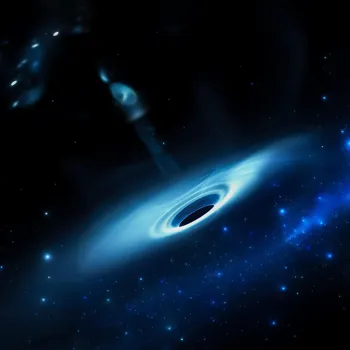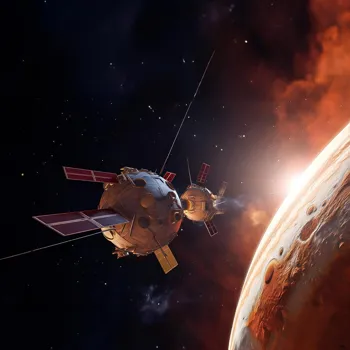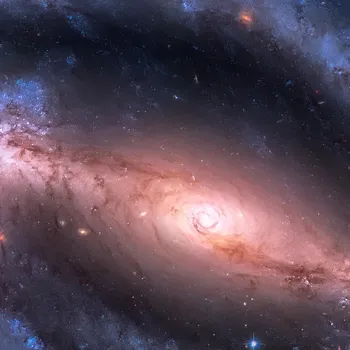Unveiling the Mysteries of the Universe: A Journey into Astronomy's Latest Frontiers. Read on to discover the wonders of space
Our fascination with the cosmos is timeless. From ancient sky gazers to modern-day
scientists, we've always looked up, curious about the twinkling lights above. Nowadays, astronomy is booming with new discoveries.

Telescopes are getting better, space missions more ambitious, and our understanding of the universe is expanding at a rapid pace. Let's take a look at some of the recent, mind-blowing findings that are keeping astronomers and space enthusiasts like us on our toes.
Search for exoplanets and habitable zones for potential life
One major area of excitement is the ongoing search for exoplanets – planets orbiting stars other than our Sun. The Kepler Space Telescope, and now the Transiting Exoplanet Survey Satellite (TESS), have been instrumental in finding thousands of these distant worlds.

Some exoplanets are gas giants like Jupiter, while others are rocky and potentially Earth-like. What's particularly exciting is the search for exoplanets within the “habitable zone” of their stars – the region where temperatures could allow liquid water to exist on the surface.
The presence of water is considered crucial for life as we know it. Although we haven’t found definitive proof of life elsewhere just yet, each new exoplanet discovery brings us closer to answering the fundamental question: Are we alone?
Scientists are now using powerful telescopes, like the James Webb Space Telescope, to study the atmospheres of these exoplanets. By analyzing the light that passes through their atmospheres, they can look for chemical signatures that might indicate the presence of life, such as oxygen or methane.
This marks a significant step forward in our search for extraterrestrial life, bringing us closer to an answer.
Black holes observed in detail, EHT captures first image, confirming theories, studying galactic evolution
Black holes, once considered purely theoretical objects, are now being observed and studied in greater detail than ever before. The Event Horizon Telescope (EHT), a global network of radio telescopes, made history by capturing the first-ever image of a black hole in 2019.

This image, showing a bright ring of hot gas swirling around a dark central region, confirmed Einstein's theory of general relativity in a spectacular way. More recently, the EHT collaboration has captured images of the black hole at the center of our own Milky Way galaxy, Sagittarius A*.
These images provide invaluable data for understanding the behavior of black holes and their role in the evolution of galaxies. These massive objects warp spacetime and have gravitational effects that are astonishing.
Scientists are now focusing on understanding how these supermassive black holes form and grow at the centers of galaxies, and how they influence their surrounding environments. It's a fascinating field pushing the boundaries of physics.
Study of dark matter & energy, key challenge in astronomy, 95% of universe unknown
The study of dark matter and dark energy remains one of the biggest challenges in modern astronomy. We know that only about 5% of the universe is made up of ordinary matter – the stuff that makes up stars, planets, and ourselves.

The remaining 95% is composed of dark matter and dark energy, which we cannot directly see or interact with. Dark matter is thought to provide the extra gravity that holds galaxies together, while dark energy is believed to be responsible for the accelerating expansion of the universe.
Despite their mysterious nature, scientists are making progress in understanding these elusive components of the cosmos.
Experiments are underway to detect dark matter particles directly, while telescopes are mapping the distribution of galaxies across the universe to probe the effects of dark energy.
Although many questions remain unanswered, it is a very thrilling subject to explore and many scientists are doing their best.
Cosmology in a golden age, studying universe's evolution
Cosmology, the study of the origin and evolution of the universe, is also experiencing a golden age. New observations from telescopes like the Planck satellite have provided precise measurements of the cosmic microwave background radiation – the afterglow of the Big Bang.

These measurements have allowed us to refine our understanding of the age, composition, and geometry of the universe.
One of the biggest puzzles in cosmology is the “Hubble tension” – a discrepancy between the rate of expansion of the universe measured locally and the rate predicted from the cosmic microwave background.
This tension could indicate that there is something fundamentally wrong with our current understanding of the universe, possibly requiring new physics to explain it.
Solving these cosmological puzzles will undoubtedly lead to exciting breakthroughs in our understanding of the universe's past, present, and future.
Space missions drive scientific discovery and inspire innovation
Space exploration is essential for advancing our knowledge of the universe. Missions to other planets and moons provide invaluable data about their geology, atmosphere, and potential for life.

Recent missions, such as NASA's Perseverance rover on Mars and the Juno spacecraft orbiting Jupiter, have yielded remarkable discoveries. Perseverance is searching for signs of past microbial life on Mars, while Juno is exploring Jupiter's magnetic field and internal structure.
Future missions, such as the Europa Clipper mission to Jupiter's moon Europa and the Dragonfly mission to Saturn's moon Titan, hold the promise of even more groundbreaking discoveries. These missions are not just about scientific exploration.
They also inspire the next generation of scientists and engineers, and drive technological innovation that benefits society as a whole. Missions take time, are very costly, but will definitely yield results.
New astronomy discoveries inspiring exploration of universe mysteries
The latest discoveries in astronomy are truly inspiring, these are expanding our understanding of the universe and our place within it. From the search for exoplanets to the study of black holes, dark matter, dark energy, the cosmos holds endless mysteries waiting to be unlocked.

With continued investment in research and technology, together we can inspire other generations. As we continue to explore the universe, we can be sure that many more surprising discoveries are waiting just around the corner, which we will get to explore.













